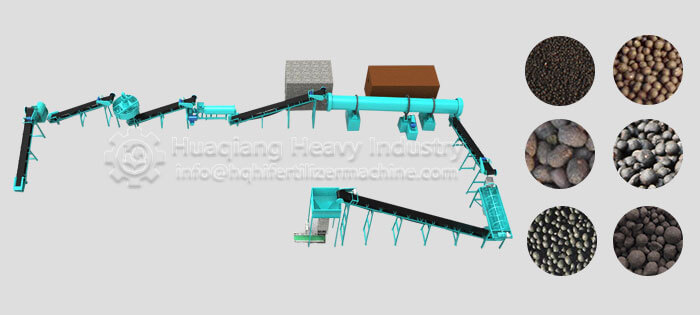
Standardized operation of organic fertilizer production line equipment can ensure production safety. Whether it is processing livestock and poultry manure, straw or kitchen waste, organic fertilizer equipment needs to strictly follow the operating specifications.
1.Fermentation Management
Regular Turning: In tank-style fermentation, use a compost turning machine every 1–2 days to ensure oxygen supply and prevent localized overheating (>70°C), which could kill beneficial microbes.
Temperature Control: Maintain fermentation temperature at 55–65°C for 7–15 days to fully eliminate pathogens and weed seeds.
Rain Protection: Cover outdoor piles with waterproof tarps to prevent nutrient loss from rainwater.
2.Equipment Safety
Regular Lubrication: Apply lubricant weekly to bearings, chains, and other transmission parts to reduce wear.
Electrical Checks: Keep motors and control panels dry and dust-free to prevent short circuits and downtime.
Emergency Stop Tests: Test emergency brakes and safety guards monthly to ensure quick response during incidents.

3.Quality Control
Full Decomposition: Finished compost should be dark brown, odor-free, with a pH of 6.5–8.5.
Thorough Screening: Use a drum screen to remove undecomposed debris; ideal particle size is 2–4mm.
Airtight Packaging: Pack finished products (<30% moisture) in moisture-proof bags to prevent clumping during storage.
4.Environmental and Worker Safety
Exhaust Treatment: Install bio-deodorizers in fermentation areas to control ammonia and hydrogen sulfide emissions.
Personal Protection: Workers must wear masks and gloves. Wash hands after handling compost to prevent pathogen exposure.
In short, standardized operation of organic fertilizer production line equipment is the core to ensure production safety and improve fertilizer quality, and every link needs to be strictly controlled.